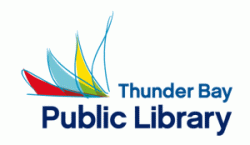Learn about the benefits of constructing a multi-year internship from a MLIS student's perspective.
Linked to Learning: the Public Library and Local Schools
Ten years ago, it was standard practice for teachers to bring their students to the public library for a “class visit”. This provided the students with an introduction and overview of how the library worked and how they might access the information they need for different assignments.
Today is a very different matter; teachers are increasingly pressed for time and resources.
 The Thunder Bay Public Library (TBPL), like many other public libraries in Ontario, has been grappling with how to maintain a connection within the schools (elementary, secondary, and post-secondary). In recent years as the traditional class visit model declines, particularly with the high schools, we have seen an increase in the interest and demand for in-school class visits.
The Thunder Bay Public Library (TBPL), like many other public libraries in Ontario, has been grappling with how to maintain a connection within the schools (elementary, secondary, and post-secondary). In recent years as the traditional class visit model declines, particularly with the high schools, we have seen an increase in the interest and demand for in-school class visits.
Engagement among elementary school teachers remains strong and has resulted in some great developments in the types of programming offered to their students by the library’s Children’s & Youth Services staff.
At the secondary school level, regular research workshops at a local high school have been offered for several years by Reference and Adult Services staff, usually at the beginning of each semester. These sessions involve the senior English classes congregating in the school’s library throughout the day to learn about secondary sources and literary criticism material available at TBPL.In a city the size of Thunder Bay (108,000), word gets around and in 2013 we were invited to do similar research workshops at other high schools.
In the spring we took part in a high school certification training program in which we offered a three hour workshop entitled “Get Hired, Not Fired! Social Media for Job Seekers”. This was quickly followed up with a shorter version of the same workshop at a local high school leading into the summer months. Other opportunities included an afternoon spent with students in need of help with how to access ebooks from the Overdrive collection.
At this point it was decided that we needed to make a plan for how to leverage the growing momentum. A member of the Community Action Panel (a group of community members who volunteer their time to help advise on the direction of TBPL) suggested sitting down with the librarians who handle most of the school relationships for a meeting. Some of the key points that were made in that discussion included the importance of taking the library to the students and making it as easy as possible for the teachers to have you in their classroom. Providing direct links to the curriculum in any promotional material or emails is also really important.
Speak their language, not that of the library.
This idea has led to the development of new marketing brochures that feature lots of colour, images, and specific detail on the kinds of workshops/visits we can offer. Further suggestions covered the need to bring our in-house programming out into the open spaces within and around the physical library buildings, as well as regularly promoting the fact that all of our resources, services, and programs are available for free and to everyone in the community.
Other key sources for ideas and suggestions here at TBPL are the teacher librarians at specific schools with whom we have developed relationships. They provide insight into the needs of the students and act as coordinators within the schools to bring teachers on board with what we have to offer. And of course we can’t forget the students themselves. In addition to the Community Action Panel, TBPL hosts a Youth Advisory Council (YAC). The members of YAC meet regularly throughout the school year and serve as a reality check for us. They tell us when our spaces, services, and programs just aren’t cool anymore and then provide ideas on what should be happening at their public library.
It turns out that like most of what we do, the answers are right in front of us and all we have to do is ask what people think.
Jesse Roberts is the Head of Reference Services at the Thunder Bay Public Library in Thunder Bay, Ontario. She leads the library in areas such as services to small business, local history and genealogy researchers, and copyright. She can be reached at jroberts [at] tbpl.ca.


